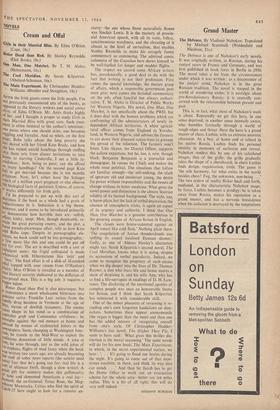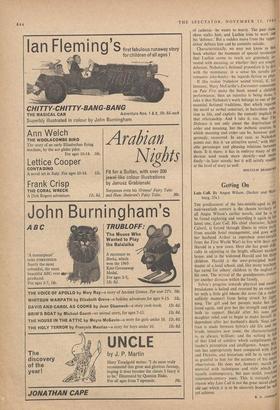Grand Master
The Defence is one of Nabokov's early novels. It was originally written, in Russian, during his emigre years in France and Germany,. and was first published in book form in Berlin in .1930. The novel takes a lot from the circumstances under which it was written: as a documenter of the émigré mind, Nabokov is in the great Russian. tradition. The novel is steeped in the world of wandering exiles; it is nostalgic about pre-Revolutionary Russia; it is centrally con- cerned with the relationship between present and past.
This is, in fact, what most of Nabokov's work is about. Repeatedly, we get this hero, in one sense deprived, in another sense intensely aware.; who bumbles farcically through a world of rough edges and threat. Here the hero is a grand master of chess, Luzhin, with an extreme neurotic obsession. As a boy, at home and at school in his native Russia, Luzhin finds his personal identity in moments of seclusion and retreat. Nabokov renders this by one of his calculated images, that of the grille; the grille gradually takes the shape of a chessboard; in chess Luzhin finds design, organisation, truth. The game is 'the sole harmony, for what exists in the world besides chess? Fog, the unknown, non-being. • The two orders of reality flicker back and forth, mediated, in the characteristic Nabokov usage, by farce. Luzhin becomes a prodigy; he is taken away from Russia, makes his reputation as a grand master, and has a nervous breakdown when his isolation is destroyed by the temptations of cathexis—he wants to marry. The past rises, chess stalks him, and Iruzhin tries to work out his 'defence.' But a sudden move from the 'opPn- sition' defeats him and he commits suicide.
Characteristically, we may not know in this book whether the moments of special revelation
that Luzhin , seems to reach are genuinely in- vested with meaning, or whether they are simplY delusion. Nabokov's fictional procedure is to jet with the numinous; in a sense his novels arc romantic joke-books—he regards fiction as plaY.
If this makes Nabokov sound trivial, if, for instance, Mary McCarthy's Encounter comments on Pale Fire make the book sound a childish performance, then an injustice is being done. I take it that Nabokov's work belongs to one of the essential fictional traditions, that which regards the novel as verbal construct, in hazardous rela- tion to life, and exploits the comedy implicit in that relationship. And I take it, too, that The Defence is not only about the deprivation of order and meaning, but the msthetic sources in which meaning and order can be, however dart' gerously, recovered. In any case, as Naboke points out, this is 'an attractive novel,' with like* able personages and pleasing relations between them. It is more; it has in embryo many of the devices used much more showily—and more finely—in later novels; but it will satisfy readilY at the level of story as well.
MALCOLM IIRADEDO











































 Previous page
Previous page